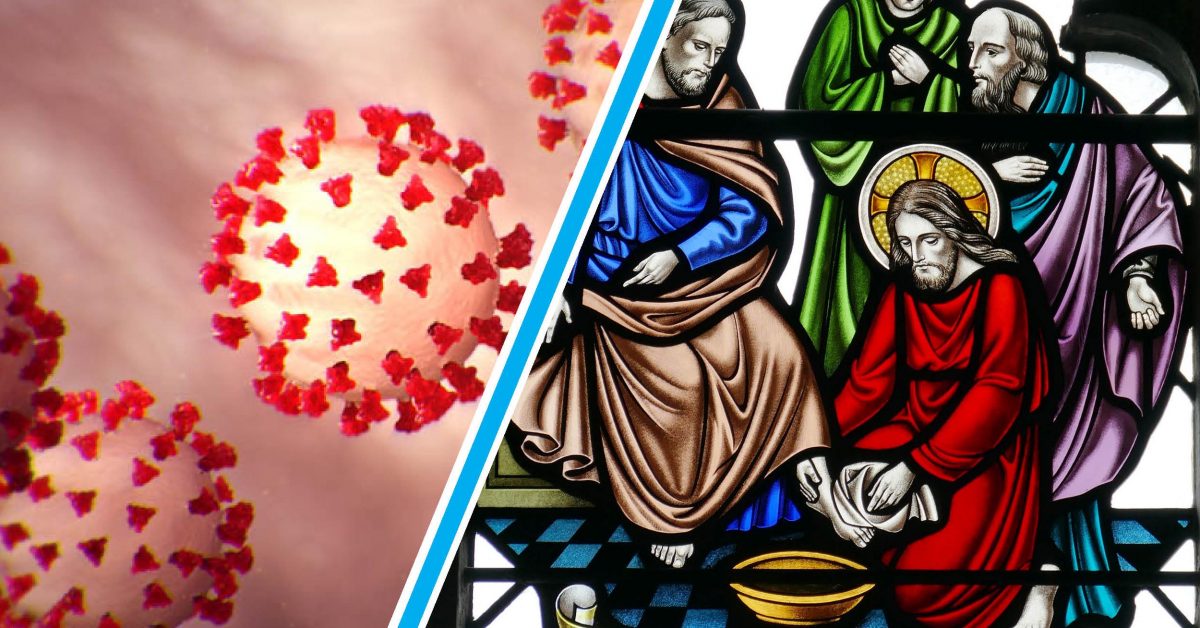I was coincidentally reading a novel set during the bubonic plague, when the novel coronavirus outbreak began in China. A reminder that pandemics are not novel.
Yet they raise the inevitable “big questions of life.” As Christians, we turn to the Bible for answers and find that stories of illness are common, as is teaching on suffering. “In this world you will have trouble. But take heart! I have overcome the world” (Jn 16:33; and check out Paul’s teaching on suffering: Rom 5:3, 8:18, 12:12). There is always hope amidst the trouble, but no guarantees of instant relief. Neither is there clear teaching regarding the cause of sickness: sometimes it is attributed to natural factors, sometimes sin, sometimes evil spirits. Mostly no explanation is given. Jesus does not lecture sufferers about reasons for their illness. Instead, the Gospels depict Jesus healing and cleansing people; he treats disease as an intruder into his kingdom, something to be rebuked (Luke 4:39). Indeed, pandemics are contrary to God’s will for abundant life and salvation. Theologian Adolf von Harnack wrote in 1908 that “Jesus says very little about sickness; he cures it.”
Scientists also avoid simplistic explanations for things like COVID-19. It is a by-product of a complex world where mutations may produce good results, but certainly not all. It is spread in multiple ways, can cause a variety of symptoms, and the severity of illness depends on host factors. Its transmission may be mitigated by good self-care and appropriate social distancing. Scientists in many fields are working hard to find a cure and an immunization; policy makers are working to minimize spread, and health-care workers are working hard to care for the sick.
Jesus similarly teaches his followers to care for themselves—eating (Mt. 15.32-39), drinking a little wine (1 Tim. 5.23). (Just to clarify, alcohol does not prevent viral infections!) He also commands his followers to feed the hungry and take care of the sick (Mt. 25.31-46). Historically, Christians have been at the forefront of caring for diseased people, when society rejected them. Pandemics are a reminder to the Church to be compassionate and wise.
Coincidentally, I contracted a cold virus the week before COVID-19 was declared a pandemic. Aside from feeling miserable, I experienced a small taste of the fears and judgments that accompany such things. People asked in an almost accusatory tone if I had been “tested.” I went to the grocery store to replenish my tissue supply—the shelves were bare. When I was mostly recovered, I went to the library (to replenish my book supply!) and felt guilty when I coughed. Once home I washed my hands while singing “Jesus loves me…” and felt better.
Pandemics remind us of our mortality, something we prefer to avoid thinking about. When faced with the unknown, we try to alleviate our anxiety through denial, blame, avoidance, and rigid or magical thinking. We crave certainty and control, but what we need is faith. As Augustine says, “our hearts are restless ’til they rest in you.” This is a time when people may be asking questions of faith more frequently, and questions about the relationship between science and faith. The two are intertwined as we fulfill our mission to understand God’s world and to work with him in caring for and healing it. We will never have all the answers but can be assured of divine comfort during our suffering (Ps 23; 2 Cor. 1:3-5).
